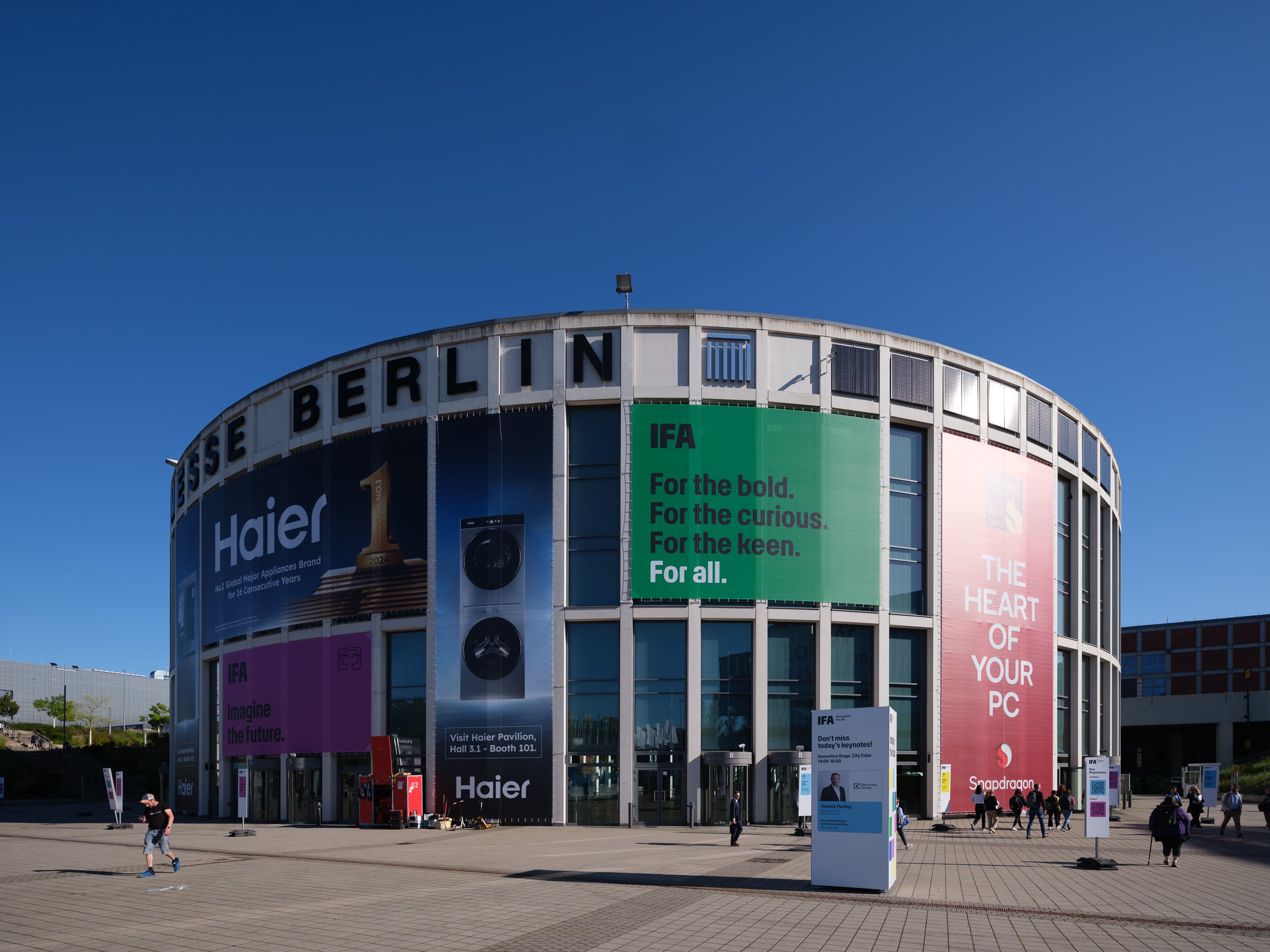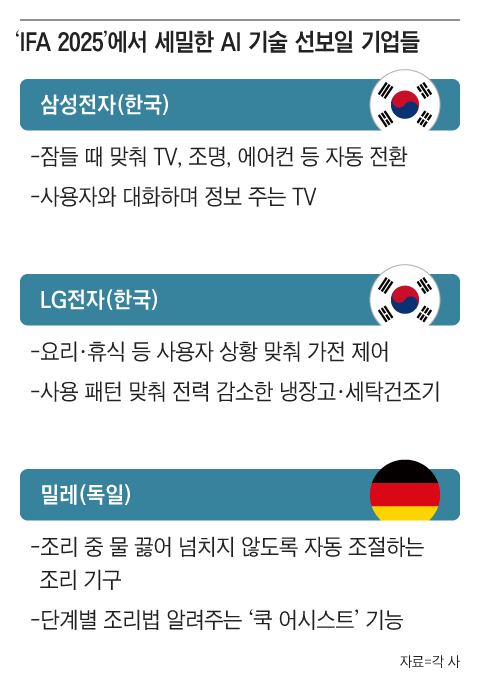AI appliances become new normal at IFA 2025

On the 5th (local time), the European largest home appliance exhibition, ‘IFA 2025,’ opened in Berlin, Germany, with a flood of AI-integrated home appliances and electronic devices. As AI begins to permeate daily life, companies are focusing on ‘details.’ Beyond mere intelligence, they are introducing AI devices that users can find convenient in real-life scenarios. The goal is for devices to naturally understand conversations and autonomously perform tasks. A source from the tech industry stated, “At this IFA, the future concepts previously presented will start emerging as products usable in real life.”
◇AI Appliances Have Already Become the New Normal
IFA 2025 features 1,800 companies from 138 countries. While organizers categorize products into home appliances, smart homes, and others, the distinction is blurring as nearly all products emphasize AI. Consequently, the sophistication of AI technology has become a key competitive factor. Chinese company Viaim unveiled new earbuds combining AI, focusing on professional use cases. The AI can record real-time conversations, automatically generate summaries, and create task lists.
AI appliances have already become the new normal. Traditional German companies like Miele are also integrating AI into their products. Notably, AI is being applied in kitchens, the second-most-used space in homes after living rooms. Miele showcased its new induction cooktop, the ‘KM 8000 series,’ and ‘M Sense cookware’ at IFA 2025. The AI-equipped induction cooktop precisely measures temperature to prevent food from burning or overflowing. The cookware also automatically adjusts to prevent boiling over. Siemens’ oven, equipped with cameras and AI, can recognize and cook up to 100 types of dishes. Scottish company Uni integrated AI into its pizza oven, claiming its ‘Pizza Intelligence’ ensures even temperature distribution for uniform cooking.

◇Truly Autonomous AI in Action
AI is evolving from conceptual ideas to genuinely connecting appliances and optimizing them for individual users. South Korean companies, including global home appliance leaders LG Electronics and Samsung Electronics, are leading this shift. AI devices now understand natural speech and operate according to user preferences. The goal is to create an ‘AI Home’ where multiple AI appliances work seamlessly together.
Samsung Electronics participated in IFA 2025 under the theme ‘AI Home, Bringing the Future into Reality.’ Its AI Home offers personalized, fine-tuned control. Based on sleep data collected via Galaxy Watch or Ring, the AI recommends optimal bedtime and automatically adjusts connected devices—such as TVs, lights, and air conditioners—via SmartThings before sleep. Samsung also displayed a TV that converses with users, an AI-equipped refrigerator, and a washer-dryer.
LG Electronics unveiled its ‘LG AI Home’ solution. Through the AI Home Hub, LG ThinQ On, the company links home appliances and IoT devices to customize operations based on user lifestyles. For instance, simply saying, “Recommend a nutritionally balanced menu,” prompts the AI to search for recipes and automatically prepare necessary devices, such as preheating the oven. LG also introduced 25 new AI appliance models.
Dutch company Philips Hue showcased technology that transforms existing light bulbs into motion sensors. This smart home solution detects user movement via household bulbs and automatically turns lights on or off based on location.
Beyond control, AI is significantly enhancing appliance functionality. A standout example is Dolby’s AI-based image enhancement technology, ‘Dolby Vision 2,’ which optimizes visual quality in real-time based on TV content. It will be applied to Hisense’s premium RGB mini-LED TV models.
※ This article has been translated by Upstage Solar AI.
Komentar
Posting Komentar